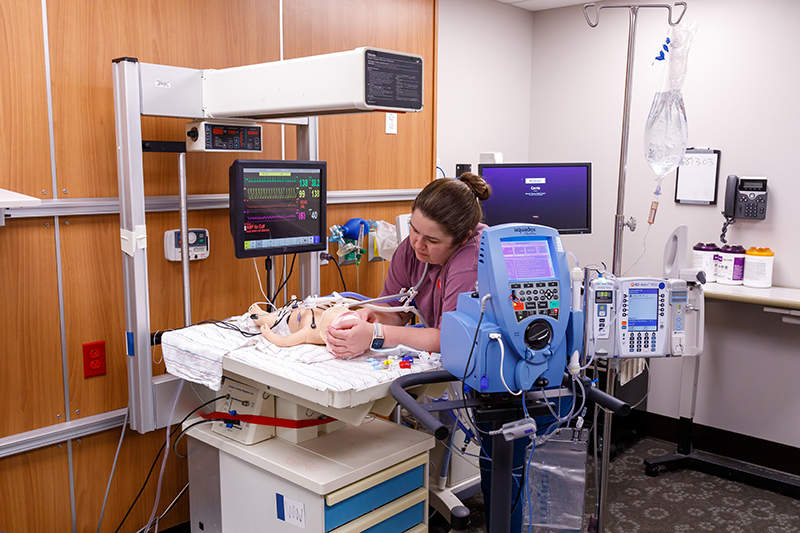
Children’s of Alabama provides more days of dialysis to babies than any institution in the world. Indeed, Children’s nephrologists and intensivists pioneered the use of dialysis in newborns and young children by retrofitting a machine used for adult heart failure patients. Now, with U.S. Food and Drug Administration-approved dialysis machines for young children on the market, the team has been inundated with requests from other hospitals for training and information.
The result is the Neonatal and Infant Course for Kidney Support (NICKS), a one-and-a-half day educational program that combines didactic teaching from a variety of specialists, an opportunity to have a parental perspective, “hands-on” skills sessions and virtual small group case simulations.
“As medicine advances and we continue to create innovative answers to problems, it is imperative that we offer up what we have learned in a practical, ‘hands-on’ way,” said course co-founder and acute dialysis nurse practitioner Kara Short, MSN, CRNP.
“There’s a huge need across the country and across the world for people to understand how dialysis is different for newborns and small kids,” said course co-founder David Askenazi, M.D., MsPH, FASN, who directs the Pediatric and Infant Center for Acute Nephrology (PICAN) at Children’s. “We cover the whole gamut of how to build a program with the hope that we can educate them, inspire them and provide them with tools so they can go back to their institutions and succeed in caring for small kids.”

While the course was originally designed to be held in person, COVID-19 forced it online. That hasn’t hurt its popularity. The first course, held in July, sold out in a few days and by early September there was a 20-person waiting list for the October program. Participants have come from throughout the world, including Israel, Qatar, and Canada. The interest has been so great that Short and Askenazi doubled the number of participants from 20 to 40.
“The feedback has been tremendous,” said Short. Among the comments she’s received from participants:
- “I loved this! I was very impressed with the overall quality. Well done, I really enjoyed it!”
- “The conference was extremely well run, efficient and very informative. I know I learned a lot.”
- “Excellent job on your inaugural course. Would highly recommend.”
- “Enjoyed attending with lots of good information. Looking forward to reviewing policies to help grow our own program.”
The plan is to continue offering the virtual course every three to four months. For information, contactDavid Askenazi, M.D., MsPH, FASN at daskenazi@peds.uab.edu or Kara Short, MSN, CRNP at kara.short@childrensal.org.

No Comments